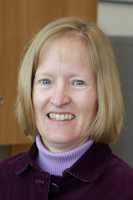27 Jun Many Elderly Patients Not Receiving Adequate Colon Cancer Screening or Follow Up
MedicalResearch.com Interview with:
Carrie N. Klabunde, PhD
Office of Disease Prevention
Office of the Director
NIH
Rockville MD
MedicalResearch.com: What is the background for this study? What are the main findings?
Response: Many studies of colorectal cancer screening focus on adults 50-75 years of age; few specifically look at screening in the elderly. We wanted to examine colorectal cancer screening use, including follow-up diagnostic testing for those with abnormal fecal blood screening tests, in adults 65 years of age and older. We also wanted to assess whether screening use in this population is influenced more by elderly individual’s chronological age, or their health status (called comorbidity in our study). The study was conducted in three large, integrated healthcare systems: Kaiser Permanente in Northern California and Southern California, and Group Health in Washington state and Idaho. We examined data on nearly 850,000 patients aged 65-89.
MedicalResearch.com: What should readers take away from your report?
Response: Seventy-two percent of these patients were up-to-date with colorectal cancer screening. This varied considerably by age, with 86% of those aged 70-75 but only 32% of those aged 85-89 up-to-date. There was less variation by health status: 73% of the healthiest patients were up-to-date with screening, compared with 70% of the least healthy patients. Over 250,000 patients in our study were screened with fecal blood testing (most with fecal immunochemical, or FIT, tests); 27,517 of them had an abnormal result. Ideally, most would have received follow-up colonoscopy within 3 months of their abnormal fecal blood test; however, only 65% did. This again varied considerably by age, with patients aged 65-69 having the highest follow-up rate (69%) and those aged 85-89 having the lowest (37%). Follow-up rates also varied by health status, but not as much as they did by age: the rate of timely follow-up was 69% for the healthiest patients and 53% for the least healthy.
MedicalResearch.com: What recommendations do you have for future research as a result of this study?
Response: We concluded from our study that many relatively healthy older patients are not being screened, and–among elderly patients who are screened with fecal blood tests and have an abnormal result–not all are receiving timely follow-up colonoscopy.
MedicalResearch.com: Is there anything else you would like to add?
Response: We discuss in our article the need for improved systems in primary care to support individualized decisions about screening for elderly patients, as well as a particular need for more research to understand the patient, provider, and healthcare system barriers that may prevent elderly patients from receiving timely follow-up.
MedicalResearch.com: Thank you for your contribution to the MedicalResearch.com community.
Citation:
Influence of Age and Comorbidity on Colorectal Cancer Screening in the Elderly
Klabunde, Carrie N. et al.
American Journal of Preventive Medicine , Volume 0 , Issue 0 ,
DOI: http://dx.doi.org/10.1016/j.amepre.2016.04.018
Published Online:June 22, 2016
Note: Content is Not intended as medical advice. Please consult your health care provider regarding your specific medical condition and questions.
More Medical Research Interviews on MedicalResearch.com
[wysija_form id=”5″]
Last Updated on June 27, 2016 by Marie Benz MD FAAD

